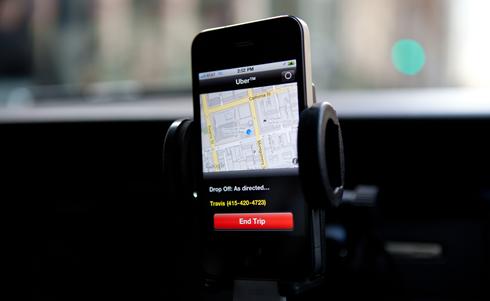Uber, the limousine service based in San Francisco, has been quite the topic this past week — especially since a local Berlin Taxi Operator has asked a Berlin court for a preliminary injunction regarding Uber Black in Berlin.
It’s interesting that the taxi operator who asked for the injunction has decided not to proceed with it. If this preliminary injunction is overturned, the taxi operator could be required to pay compensation claims to Uber.
Though there is quite a discussion around if Uber will be successful in Germany or not, that is not the issue. The issue is the court ruling. It underlines the obvious: Germany is not flexible at all when it comes to new businesses.
While you could argue that operators partnering with the Uber platform could be in violation of the law if they do not return their limousines to their operational headquarter, also notice the fact that this law was passed in 1987.
In 1987, the Berlin Wall still existed, which was 20 years (!) before the first iPhone was presented in 2007. It was a time far away from the age of smartphones, apps, location-based services and the opportunities and variety we have today.
Neelie Kroes, Vice-President of the European Commision, commented on Brussel’s court decision on banning Uber on her blog, “This decision is not about protecting or helping passengers — it’s about protecting a taxi cartel.
“The relevant Brussels Regional Minister is Brigitte Grouwels. Her title is ‘Mobility Minister’. Maybe it should be ‘anti-Mobility Minister’. She is even proud of the fact that she is stopping this innovation. It isn’t protecting jobs Madame, it is just annoying people!”
This is not just an Uber problem. It’s a problem we face with every “innovation”. Even the ones where you can order a car that is not a taxi with your smartphone. Airbnb faces the same issue. Vacation rentals are not new but, of course, the hotel cartel fears them.
In the case of Airbnb, the issue is even more complex. Property costs are rising, and families feel that they are being treated unfairly when individuals take advantage of personal extra space, such as when someone rents out four rooms in a five room apartment for a profit.
This is another example of why it is so important to develop new regulations. The truth is new businesses affect us, directly or indirectly.
In the end, Germany is great when it comes to cars, Schwarzbrot, and beer. However, it needs to recognize that there are industries, ideas, and companies that come up and will change how we live, behave, and spend our money. It’s time for German companies to stop blocking innovation and accepting the outdated laws.
It’s not just Uber and Airbnb who should support this argument. It’s also old industries that should re-think their business models.
Politicians need to come closer to both sides to understand the complexity of disruptive business models and ideas and help find a way that supports all parties. After all, it’s not just about businesses but also about markets and customers that demand new ways to perform old habits.
This story originally appeared on VentureVillage. Copyright 2014
VentureBeat's mission is to be a digital town square for technical decision-makers to gain knowledge about transformative enterprise technology and transact. Learn More

